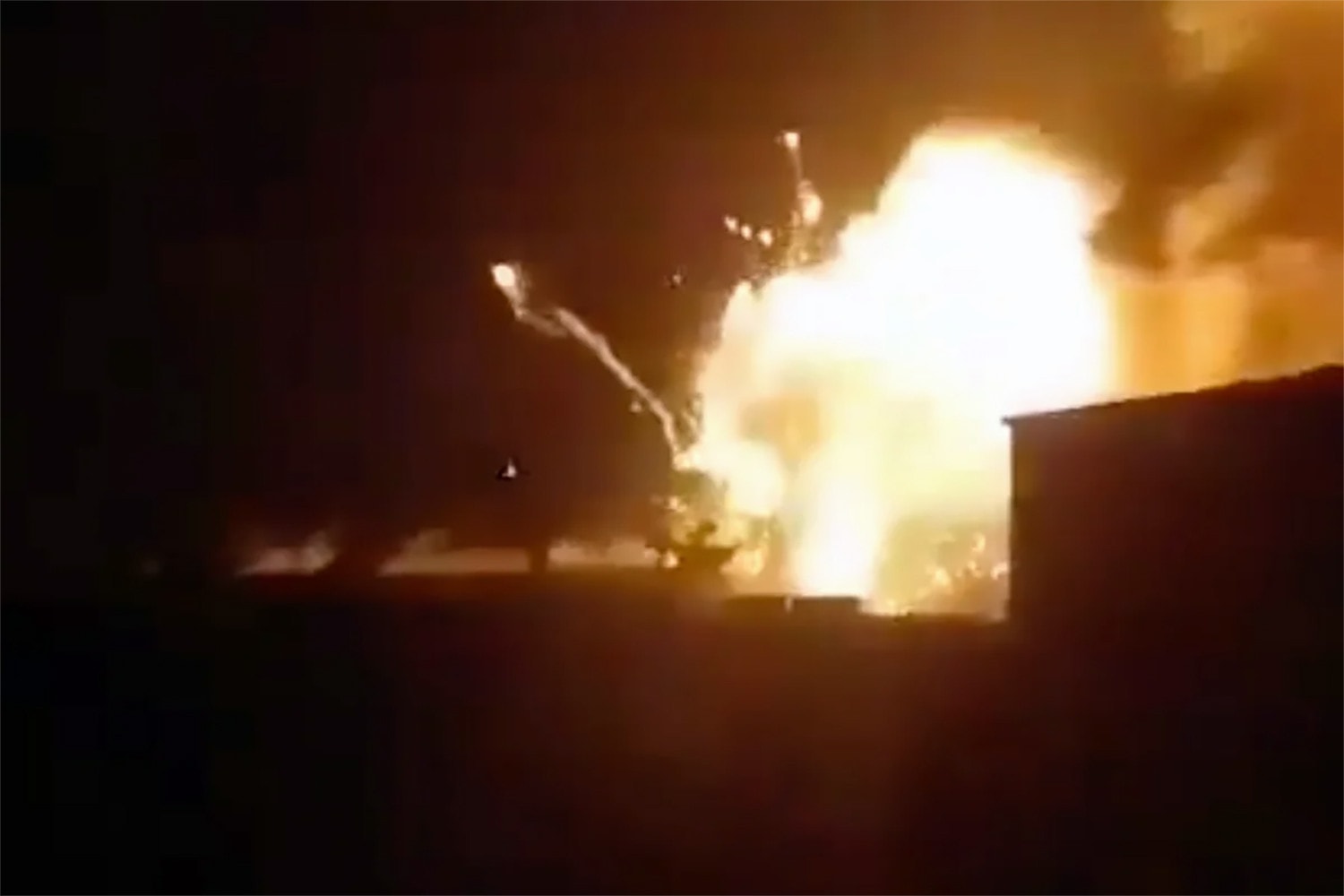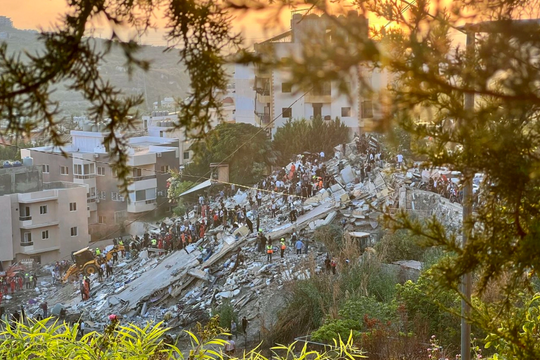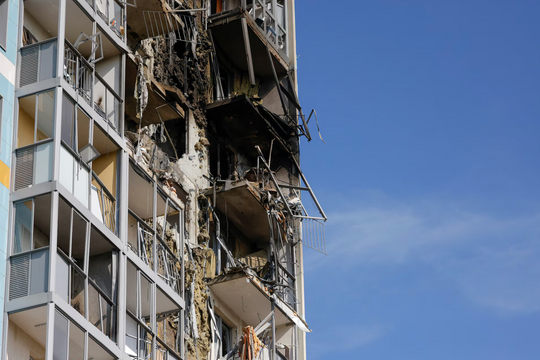Israel bombs Syrian capital, declares 'no long-term occupation' in Lebanon
The Syrian Ministry of Defense said that the Israeli army used unmanned aerial vehicles (UAVs) and fighter jets to bomb the capital Damascus early this morning (October 1), causing 9 casualties.
According to the Syrian Ministry of Defense, the Israeli airstrikes on Damascus began at around 2 a.m. on October 1, from the direction of the Golan Heights, which is under the control of Tel Aviv forces. Local air defense systems were activated to intercept hostile missiles and UAVs.

The Syrian state news agency (SANA) quoted a statement from the Ministry of Defense saying that although it successfully shot down most of the UAVs, the Israeli airstrike killed three civilians and injured six others.
Al Mayadeen news agency also reported that journalist Safaa Ahmad, a famous Syrian TV presenter, was killed along with two others in an Israeli airstrike on the Mezzeh residential area in Damascus at dawn. Rescue teams are still trying to put out the fire on the ground.
When asked about the above developments, the Israeli military said they “will not comment on information published by foreign media”.
Israel affirms “no permanent occupation” in Lebanon
Israeli officials are trying to portray the military's ground offensive in southern Lebanon as "limited in scope," CNN reported. They insist there will be "no permanent occupation," but have declined to say how deep into the neighboring country Israeli troops will go or how long the operation is expected to last.
Israeli officials also stressed that Tel Aviv's military will focus on removing "immediate threats" from Lebanese villages along the border between the two countries, including Hezbollah's ability to infiltrate northern Israel.
According to the Times of Israel, the Israel Defense Forces (IDF) announced the launch of a "targeted ground offensive operation" limited in scope and time in southern Lebanon shortly after the National Security Cabinet approved the "next phase" of the conflict with Hezbollah at a late-night meeting on September 30.
Earlier in the day, Israeli Defense Minister Yoav Gallant told troops near the border with Lebanon: “The removal of Hezbollah leader Hassan Nasrallah is a very important step, but it is not the last step. We will use all available capabilities.”






